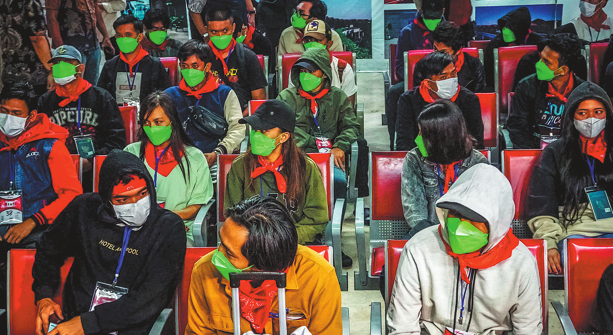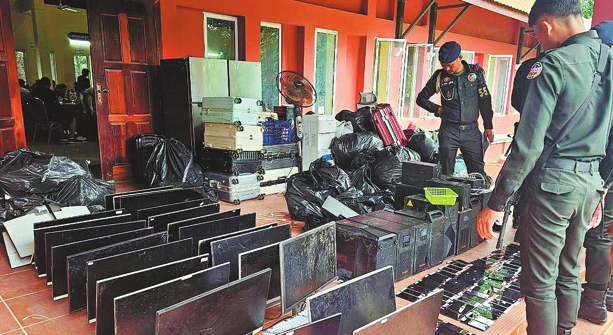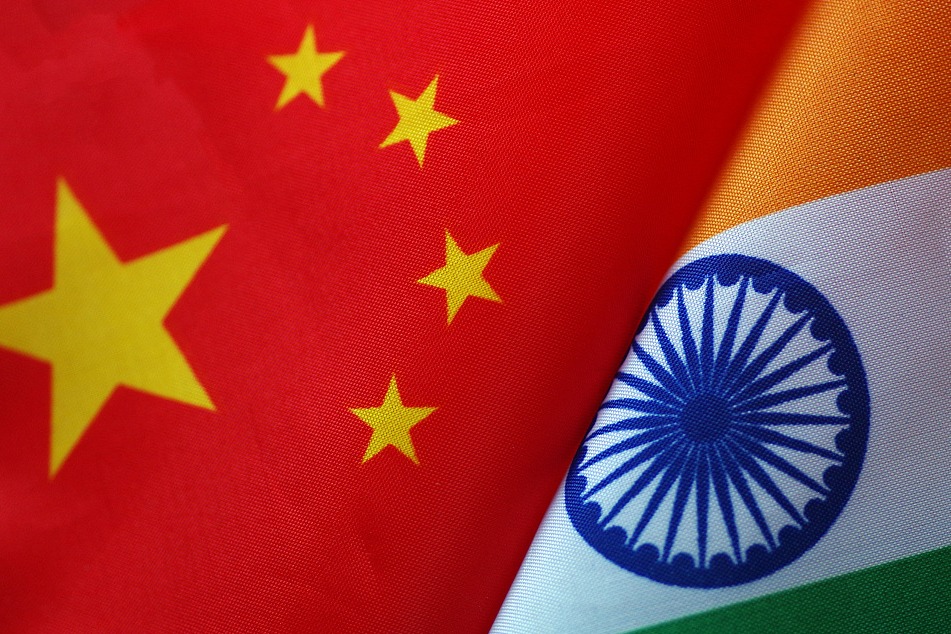Looming danger
Trafficking cases mount as Southeast Asian scam networks spread wider


Editor's note: In this weekly feature China Daily gives voice to Asia and its people. The stories presented come mainly from the Asia News Network (ANN), of which China Daily is among its 20 leading titles.
As economic pressures mount and job opportunities remain scarce, more Indonesians are falling prey to online scams and human trafficking networks in Southeast Asia, a trend analysts warn will persist without a comprehensive approach and stern law enforcement.
The Indonesian embassy in Yangon, Myanmar, announced recently it had communicated with 148 victims of human trafficking stranded in Myanmar's conflict-torn Myawaddy town, a hot spot for scam operations along the country's border with Thailand.
The Indonesians were identified after the embassy received three separate reports involving hundreds of nationals across different locations in Myawaddy, including 58 reportedly located in the former KK Park complex.
Their identities were still being verified, with the embassy staff coordinating with local authorities to move the victims to safer areas and facilitate exit permits for repatriation.

The announcement came just a week after the embassy handled another major case involving hundreds of foreign nationals, including 83 Indonesians, fleeing the KK Park complex. In less than 10 days, the Indonesian consulate said it had dealt with a total of 231 new trafficking cases.
Also recently, Cambodian authorities arrested 106 Indonesians, including 36 women, on online scam charges following a reported raid in Khan Tuol Kouk of capital Phnom Penh.
Five years since the crackdown on organized syndicates operating across Southeast Asia started, the practice of luring job seekers with fake overseas offers and forcing them into criminal operations has remained rampant.
Interpol estimates the network now generates up to $3 trillion a year, expanding operations beyond Southeast Asia into Europe, Africa and the Middle East.
The number of Indonesians caught up in such schemes has surged, with the Foreign Ministry recording a 250 percent increase in those involved in Cambodia's cyber scam centers between 2023 and 2024.
In late October, the ministry revealed that 10,000 Indonesians had been ensnared in scam and trafficking networks since 2020, marking a grim milestone underscoring the widening reach of the criminal industry.
"Out of 10,000 Indonesian citizens in our records, only around 1,500 were identified as victims," said the ministry's then-citizen protection director Judha Nugara, as quoted by Antara news agency.
He said many had joined the scam operations voluntarily, lured by the promise of quick profits. Some were even repeat offenders, Judha went on to say, returning to the same work even after government-assisted repatriation.

Economic pressure
The government has banned Indonesians from working abroad in several high-risk countries, but many remain driven to join because of economic pressures and scarce jobs at home, according to Gadjah Mada University labor expert Tadjuddin Noer Effendi.
"The sheer difficulty of finding decent job opportunities at home makes people much more vulnerable to falling into these illegal schemes," he said.
At least 7.2 million Indonesians were unemployed, according to data from Statistics Indonesia in May, most of whom were high school and university graduates.
With the domestic and global economic outlook still uncertain, State University of Jakarta sociologist Rakhmat Hidayat warned that more Indonesians could be drawn into scam and trafficking networks. Weak law enforcement, he added, has done little to stem the tide.
Several ASEAN countries have taken a stricter stance, such as Thailand, which prosecuted up to 70 percent of its returned trafficking victims in 2022, according to data from the United Nations. But there is little public data on Indonesia's own prosecution rate.
Despite 85 percent of repatriated citizens being categorized as voluntary non-victims in scam networks, the Indonesian police only arrested one of 30 perpetrators in cases that involve hundreds of victims.
"We cannot just blame those who get entangled in this network," Rakhmat said. "State intervention to break the cycle is necessary."
Transnational crimes such as online scams and human trafficking became one of the topics discussed by leaders and envoys attending the recent 47th ASEAN Summit in Kuala Lumpur.
Bloc members agreed to increase coordination to prevent such crimes from intensifying in the region, Indonesian Foreign Minister Sugiono said after the summit.
THE JAKARTA POST, INDONESIA































